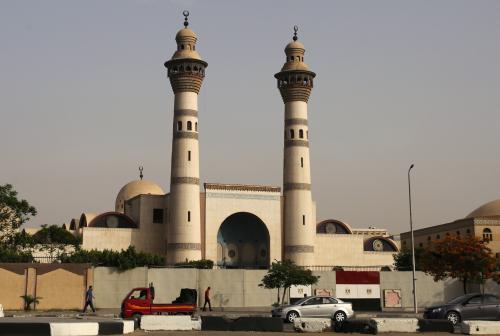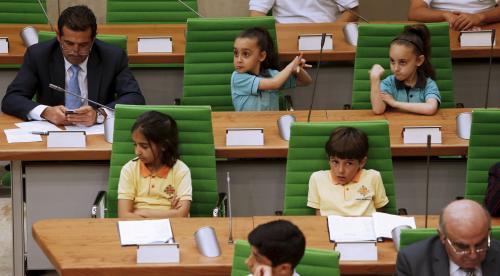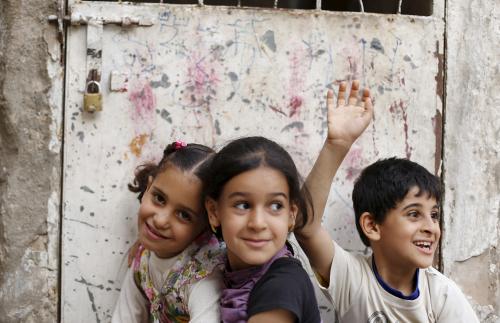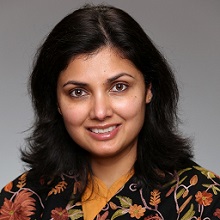I am a marwari who grew up in Calcutta. For those unfamiliar with the distinct social norms across different groups in India, this means I was born into a community that values money above all else. For many rich marwaris, and certainly at the time I was growing up, education is hardly important because it is weakly correlated with entrepreneurship and the connections and luck needed to win big bucks. For the poor and middle-class Bengali denizens of Calcutta (the social majority), on the other hand, education has intrinsic value (yes, even for the poor, who attend book fairs and art-house cinemas as an end in itself); money is crass, and marwaris may be rich but they’re uncultured. Marwaris, in turn, would make fun of the “middle-class mentality” of Bengali mothers who would feed their children with their own hands at lunch-time while their children pored over school books and crammed for their exams.
Much to my surprise, I recently noticed a similarity between poor-to-middle-class Bengali mothers and rich American suburban ones who throng the school gates at drop-off and pick-up. (Marwari mothers would never be seen at school gates; chauffeurs and ayahs would drop off their children). In wealthy suburban America, politically incorrect fun is poked at the elite stay-at-home, SoulCycle, yoga pants, Starbucks, the Parent Teacher Association (PTA), bake-sale mothers who hang around the school all the time, making sure their kids get the best teachers, make the right friends, eat the right foods, and generally, have an edge over others.
I now realize that the similarity between these antipodal social groups arises from the same, optimal response to the very different political and economic contexts in which they live: to do their best to ensure that their children have a better future, or at least to maintain their spot on the upper rungs of a highly unequal and unjust society. This observation links to a crucial challenge of governance: how to ensure that every child, regardless of where they are born, should have access to the same opportunities to do well in life. Problems of poverty, inequality, and social injustice mean that not all parents can stand up for their children in the way of aspiring Bengali and wealthy American parents. Equal opportunity for all children regardless of the accident of their birth in poor or rich circumstances, in peaceful or war-torn states, can be a moral principle shared by left- and right-wing political ideologies. It can also be an enlightened principle of self-interest—to invest in the human capital needed for a stable and prosperous world.
Furthermore, it is not just a development issue for poor countries. It is a global issue to make politics work better so that leaders everywhere do the right thing by those children whose parents cannot. Parents who cannot not only because they are too poor, but also because they are too rich to understand the nature of public institutions and policies that are needed to give every child a fair chance.
Alternatives such as PTAs, community volunteerism, and charitable giving are probably not going to be enough. PTAs can be an instrument used by elites to seek preferential treatment for their children and to impose their cultural values by organizing the parties and social events that they care about. Volunteerism and charity can be the consumption of the “warm glow” of giving rather than a real investment in fighting poverty and inequality. Career social workers, funded by the state, who stand for the rights of children, may be needed to support those from broken and abusive families, who have nowhere to turn to for help. I came to this insight not as a researcher but by reading the book J.K Rowling wrote for grown-ups—“A Casual Vacancy.” It’s been panned as a socialist manifesto rather than a novel, but you might find it the best story since Dickens about what poverty looks like in the rich world. It made me think that elevating the status of social workers and paying them really, really well so that talented and ambitious people are attracted to that career, may be a way to go. (Rowling’s story also made me think that economists’ obsession with a trade-off between incentives and intrinsic motivation in principal-agent problems is misplaced; but I digress).
Debate is needed over what is the nature of a public good; what is the role of the state and government in addressing market failures and persistent inequality, over and above volunteerism and charitable giving? Education and health for all children can serve as a crucial and tangible hook for that debate. A new research report on politics and governance, about which I’ve previously blogged, would suggest that citizens’ political engagement should center on this debate. How do contenders for leadership compare on performance, competence, and motivation to deliver public rather than private goods? The report recommends the regular and relentless marshalling of information about how many children do not have access to education and health, and how this links to failures in public policies. It suggests ways of communicating and sharing this information among citizens so that they can use it to assess the performance of leaders who are contesting for positions of power, and select and sanction them on the basis of this performance.
Thinking about just why education and health are “public goods” might lead to policies that are quite different from simply increasing spending on public schools and public hospitals. A mix of supporting competitive private market providers for education and health, complemented with some public facilities, and technologies that lower the costs of reaching children (such as the Khan Academy model for education), may be needed. Strategies that promote cash transfers and government-provided employment to alleviate poverty are often blind to the politics of clientelism and patronage that they may inadvertently nurture, at the expense of political accountability for public goods. Furthermore, a gamut of policies—ranging from macroeconomic growth, immigration, free trade, and climate change to roads, water, and electricity—are likely to matter for the goal of equal opportunity for all children. Meta-policies on governance and institutions are needed so that the leaders who wield power in government and society pursue these other types of policies, using the best available expert evidence.
Government failure to pursue policies on the basis of technical evidence is prevalent in both rich and poor countries. Governance may not be an area where the poor world necessarily has much to learn from the rich. It could even be the other way around. Citizens in the rich world may be too complacent and too smug about their superiority, while citizens in the poor world are all too aware of political problems and are hungry to do something about it. Public investments in children’s education, health, and well-being can be a concrete way to find common ground in highly polarized societies and to mobilize people to hold their governments accountable in highly corrupt societies.
The Brookings Institution is committed to quality, independence, and impact.
We are supported by a diverse array of funders. In line with our values and policies, each Brookings publication represents the sole views of its author(s).







Commentary
A politically incorrect observation about political governance
October 3, 2016